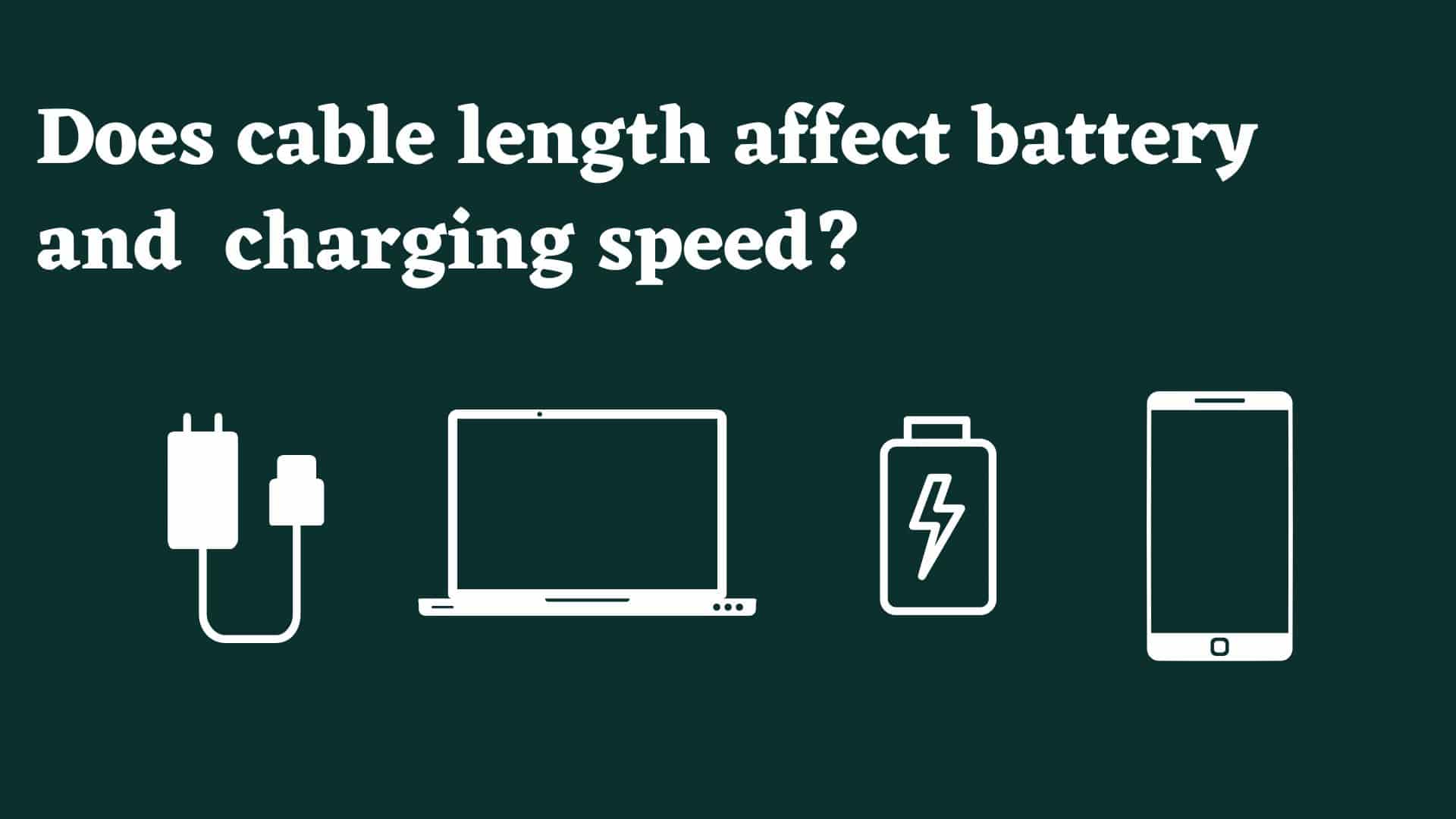How to Fix Discord Error: 'Installation Has Failed'

We can't say whether longer or shorter cable lengths affect charging speed and battery life directly. When we look at science, it says the length of the cables matters.
Ourtechroom will help you find out how cable length affects battery and charging speed. Let's discuss it.
First and foremost, we must understand that the power that enters our home is alternating current (AC), and the charger that we have has AC to DC Converter, which converts AC to DC. As a result, DC travels through the charger cables. Charging cables' primary function is to supply a constant 5VDC to the battery in the phone or any other device that has a battery. And the actual charger for the battery is in the phone or computer, and these devices have an internal controller that controls the charging current passing through them.
There are numerous factors that influence battery charging. Some of the factors are cable quality, cable type, cable length, cable cross-sectional area, and so on.
Science says cable length affects the charging speed and battery.
Science Behind:
The formula for resistance of the cables or wires looks like this:
R = ρ * L / A
Where,
R is the resistance in Ω.
ρ is the resistivity of material inside the cable in Ω * m.
L is the length of the cable.
A is the cross-sectional area of the cable's inner metallic wire.
Here we concluded that:
1. Resistance of the cables is directly proportional to the length of the cables.
In other words, resistance is proportional to cable length. As a result, as the cable length increases, the flow of electrons is disrupted as they collide with atoms (ions) of the conductor, making current flow difficult. Collisions with ions cause energy loss and opposition to the flow of free electrons in a conductor, resulting in resistance. So there are more collisions in the longer cables therefore the resistance of cables also increases.
If you have longer cables, the resistance of the cables will be higher, which will result in a lower current; as a result, less charge will be transferred from the charger to the phone over the course of time.
To put it another way, the resistance is going to be higher if the length of the wire is increased. This is due to the fact that there will be a greater number of collisions between the flowing electrons and the metal ions.
For example:
If ρ and A are the same and one charger says R1 has a length of 0.2m and another one says R2 has a length of 0.5m then
R1/R2 = 0.5/0.2 = 2.5
Then R1 = 2.5 R2, which shows that a cable with a length of 0.5m has 2.5 times more resistance than a 0.2m cable.
However, looking at the resistance of the cables, the quality of the cables matters more than the length of the cables.
If you have a high-quality cable with thicker wires, the resistance of the cable will be lower, allowing for more charge travel from the charger to the phone over time.
More resistance results in a greater voltage drop. As a result, the final supplied power (V*I) to electronic devices will be reduced. However, if the electronic devices receive the necessary power, the battery is fully charged.
However, the cross-sectional area of cables also affects the resistance and finally charging speed. We discussed with 2nd point below.
2. Resistance of the cables is indirectly proportional to the cross-sectional area of the cables.
R ∝ 1/A
If the cross-sectional area or thickness of the cable is large then the resistance of those cables is less. So thicker and better quality cables are preferred.
Other factors that affect the charging speed and battery of electronic devices are temperature, the material of the cable charger, and the internal resistance of the battery charging port.
Note that If the cable has a low resistance compared to the charging device or charging port, it will have little effect.
Advice:
FAQ:
Yes, cable quality affects charging speed and battery life. Poor wires may have higher resistance, slowing charging and possibly damaging the battery.
Yes, a low-quality cable with high resistance can harm a device's battery by generating excessive heat during charging.
Yes, the charging adapter, port, and temperature can impact the device's charging speed and battery life.
Check the device's specifications and make sure the cable is high quality to see if it's suitable for charging.
Therefore, if you have two cables of the same quality but slightly different lengths, but the longer cable is thicker than the shorter one, then there is a greater likelihood that the longer cable performs better. Because cables with a greater thickness will offer less resistance to the flow of current as it travels through the cables.
So, do not look at the length of the cables if you have quality cables.
